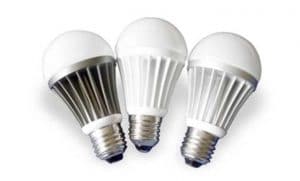In what is believed to be a milestone, more than 28 crore LED bulbs have been distributed under Unnat Jyoti by Affordable LEDs for All (UJALA) Scheme till 19th December 2017.

Moreover, a total of 52.43 crore sold by private sector till October 2017. Much to the convenience of people, the defective bulbs are replaced free of cost to consumers by Energy Efficiency Services Limited (EESL).
According to media reports, while speaking about the status of LED bulbs distributed in the country, Union Minister of State (IC) for Power and New & Renewable Energy, Raj Kumar Singh said that as on 19th December 2017, more than 28 crore LED bulbs have been distributed under the scheme. In addition, other market players in the private sector have also sold 52.43 crore LED bulbs until October, 2017. It has to be noted that Energy Efficiency Services Limited (EESL), a joint venture company of Public Sector Undertakings (PSUs) under the Ministry of Power is distributing LED bulbs under Unnat Jyoti by Affordable LEDs for All (UJALA) to domestic consumers across the country.
Informing about the quality benchmarks adhered to in LED bulb manufacturing, Singh stated that the LED bulbs distributed under UJALA scheme undergo a 3-tier (at bidding stage, distribution stage and post-distribution stage) quality control checks, to ensure that only high quality LED bulbs are distributed. As a result of astringent quality control mechanism, the failure rate of LED bulbs under UJALA scheme is only 0.48 percent and all the defective bulbs are replaced by EESL free of cost to consumers.
Quality standards for LED products are laid down and enforced by the Bureau of Indian Standards (BIS) and Ministry of Electronics and Information Technology (MeitY). BIS has informed that M/s Nielsen had reported that a number of LED bulbs being sold were spurious. BIS has also informed that Electric Lamp and Component Manufacturers’ Association of India (ELCOMA) had complained to the Department of Industrial Policy and Promotion, Ministry of Commerce and Industry about the presence of poor quality lamps, both imported and local in the market. Hence, BIS has taken up the matter with MeitY for taking appropriate action under the Compulsory Registration Order (CRO), 2012, the Minister informed.
Further, MeitY has informed that the information provided by ELCOMA was not explicit. Accordingly, they have been requested to provide the details of types of LED luminaries which were not complying to CRO. The Minister also informed that MeitY has notified “Electronics and IT Goods (Requirement of Compulsory Registration) Order, 2012 (CRO)”, under the provision of Compulsory Registration Scheme of BIS Act, 1986 mandating Indian Safety Standards for 30 categories of electronic products including LED products. The grant of registration under CRO is done by BIS based on the submission of test reports of the product from BIS recognized laboratory by the manufacturer. The documents are examined for their adequacy and conformance to the Indian Standards by BIS. To curb the sub-standard products and ensure the safety of consumers, MeitY carries out surveillance on the goods notified under the CRO, the Minister added.





























